What Is The Difference Between Flu and COVID-19?
A fever, chill, cough, and body aches seem like the same symptoms for both COVID-19 and other things like the flu and a cold. So, what is the difference between flu and COVID-19?
This post is not political in nature. I believe it is important for us to make informed decisions on how we prepare based on what we know. With that being said, I am going to explain the difference between the flu, a cold, and COVID-19 for you to make the best-informed decisions for your family!
Please keep in mind, I’m not a doctor, nurse, or anyone in the medical field. I wrote this post to inform you, my friends, about the differences between a few illnesses based on some research I’ve performed. As always, when in doubt, call your favorite medical professional if you have any questions.
Difference Between Flu and COVID-19
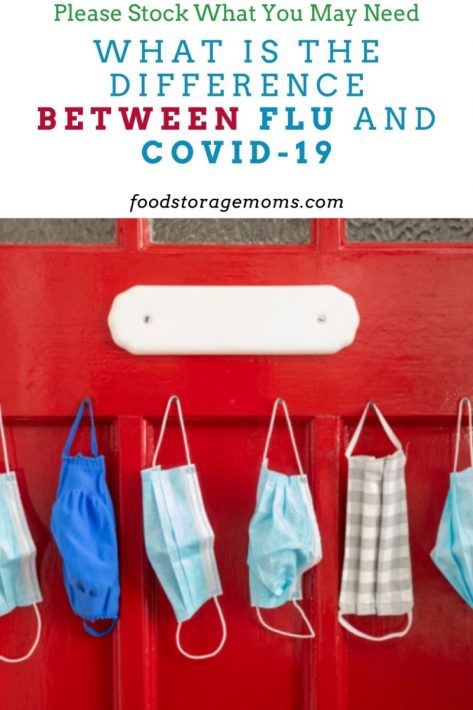
What is COVID-19 or Coronavirus?
COVID-19 is a new strain of a coronavirus. We actually have been infected over the years with coronaviruses that cause the common cold. This Covid-19 strain is new and mutated.
This new strain of coronavirus can cause a severe illness in certain groups of people. Older people, as well as those with underlying conditions, seem to be the most at risk of developing serious symptoms from COVID-19.
There is no cure or vaccine, currently, for this new strain.
The symptoms of COVID-19 include the following:
- Fever/chills
- Dry cough
- Difficulty breathing or shortness of breath
- Tiredness/exhaustion
- Body aches and pains
- Headaches
- Sore throat
- Diarrhea /abdominal issues (according to the CDC contact tracing department)
A runny nose and sinus congestion are very uncommon in this new strain.
What Is a Cold?
As you may have heard, there are 4 strains of a coronavirus that can cause the common cold. While a cold may feel miserable, the symptoms are much more mild than COVID-19 or the flu.
The symptoms of a cold include:
- Runny or stuffy nose
- Cough
- Fatigue
- Watery eyes
- Sore throat
- Body aches and pains
- Sneezing
- Headaches, sometimes
A cold lasts about 7 to 10 days. With a cold, the symptoms are not usually caused by the infection, but your body’s immune system’s efforts to try to get rid of it.
What is the Flu?
The flu is actually a completely different virus than COVID-19 or the coronavirus. The virus that causes the flu is called influenza. Each year, we have the influenza A and influenza B that we can get a vaccine for.
This upper respiratory infection is caused by a virus that affects your nose, throat, and lungs. It can last about 5 to 7 days.
They symptoms of the flu include:
- Fever/chills
- Dry cough
- Fatigue
- Body aches and pains
- Sometimes a runny or stuffy nose
- Sore throat, sometimes
- Diarrhea in children
With the flu, the vaccination does help prevent it, but you can still get the flu even after you’ve had the flu shot. However, if you have received the flu vaccine, your symptoms are milder than if you didn’t get the shot.
Difference Between Flu and Covid-19
As you can tell, COVID-19 is very similar to the flu when it comes to the typical symptoms. So, what is the major difference between flu and COVID-19? Is COVID-19 just another type of flu? Here’s what you need to know:
Symptoms Appear at Different Times
With COVID-19, you can get symptoms anywhere from 2-14 days AFTER exposure. Flu symptoms usually appear 1-4 days AFTER exposure. This means that you will typically know you are sick much quicker with the flu than you may with COVID-19.
COVID-19 is More Contagious
Scientists have noticed that COVID-19 seems to be more contagious and spreads more quickly than the flu. This means that more people will get it than those getting the Flu. When more people get something, there are more people who will have severe symptoms, it’s a matter of numbers as things spread.
Lung Injury and COVID Pneumonia

One of the major differences between the Flu and COVID-19 is that COVID-19 causes pneumonia in many patients with severe symptoms. Those with COVID pneumonia can become severely sick enough to require major medical treatments such as oxygen or even a ventilator.
The pneumonia that COVID-19 causes is a different kind of pneumonia. Most pneumonia causes the lungs to become inflamed and filled with fluid on one side. COVID-19 pneumonia tends to take hold in both lungs. The air sacs fill with fluid which limits the ability to take in oxygen causing shortness of breath, cough, and other symptoms.
Because COVID-19 causes this type of pneumonia that affects both lungs, it can cause lasting lung damage even after the disease has passed. It can take months for your lungs to improve. Time will tell what the long term effects are for those who contracted Covid pneumonia.
Lung injury is more frequent with COVID-19 than with the Flu.
COVID-19 is More Deadly
We may not realize it because we have seen thousands of people die of the flu every year. But, here is the breakdown of how many people die of the flu compared to COVID-19 based on current numbers:
| 2019-2020 | COVID-19 | Influenza |
| How many people got it? | 9.9 million (in USA) | 38 million (in USA) |
| How many people died? | Over 230,000 | 22,000 |
Different Complications
Another difference between the flu and COVID-19 is that we are seeing different complications caused by COVID-19. COVID-19 has caused blood clots and multisystem inflammatory syndrome in children.
Difference Between Flu and COVID-19 Chart
Instead of running to the doctor with every sniffle, you can use the chart below to help you determine if you have the flu, COVID-19, or a cold.
| Symptoms | COVID-19 | Flu | Cold |
| Fever | Often | Often | Rare |
| Fatigue | Sometimes | Sometimes | Sometimes |
| Cough | Often | Often | Mild |
| Sneezing | No | No | Often |
| Aches & Pains | Sometimes | Often | Often |
| Runny or stuffy nose | Rare | Sometimes | Often |
| Sore throat | Sometimes | Sometimes | Often |
| Diarrhea | Rare | In children | No |
| Headaches | Sometimes | Often | Rare |
| Shortness of breath | Often | Rare | Rare |
| Loss of taste and smell | Often | Rare | Rare |
How to Prepare for COVID-19 This Winter
Scientists don’t know everything about this new COVID-19. What we do know is that when people get severe symptoms, it is more deadly than the flu. However, many people have mild symptoms.
The bottom line is that because we don’t know a lot, or even the long term effects, scientists are doing the only things they know how to prevent the spread of any virus. We have socially distanced ourselves, wore masks, and even been on lockdown.
As the virus peaks and hospitals begin to fill up, we should be preparing for another 4 to 6-week lockdown. You will need:
- OTC medications
- Food for 4 to 6 weeks
- Water for 4 to 6 weeks
- Activities, games, crafts, or things to do while at home
- Masks
- Gloves
- Hand sanitizer
- Soap
- Shampoo
- Hygiene products
- Toilet paper (it’s already running out again)
In addition to being prepared for another 4-6 weeks shutdown that many of us cannot afford, I encourage you to read some of my posts to help get you through this:
- 30 Items You Need to Survive a Pandemic
- Side Jobs Perfect During a Pandemic
- How to Survive a Post Pandemic World
- The Pros and Cons of Wearing a Mask
- 35 OTC Medications You Should Store
Difference Between Flu and COVID-19
Final Word
There are many opinions, theories, and things going around on social media and in the news regarding the Covid-19 pandemic. The best thing we can do when preparing for any sickness or pandemic is to be prepared. Be sure to have food and water as well as over the counter medications you may need as you deal with things over an extended period.
The more prepared you are at home, the less likely you will need to go out into the chaos. If you are just starting out in your prepping journey, please read my post “Prepping for Beginners: A Guide to Get You Started.” May God Bless this world, Linda
Copyright Images: Side View Of Hospital Bed AdobeStock_141077764 by denisismagilov, Red Door With Face Masks AdobeStock_377882260 by mrriley

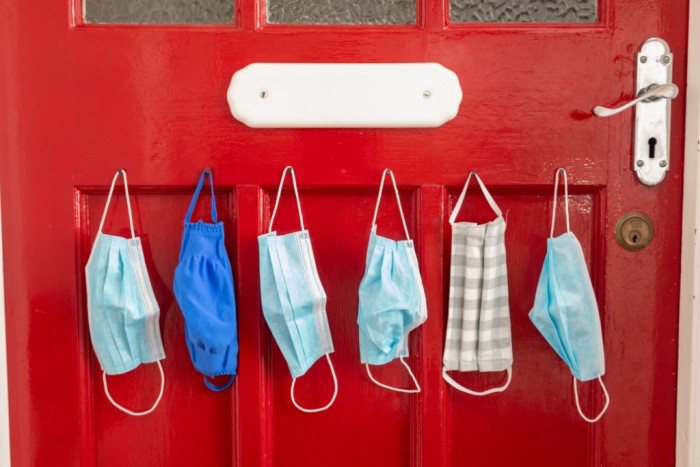

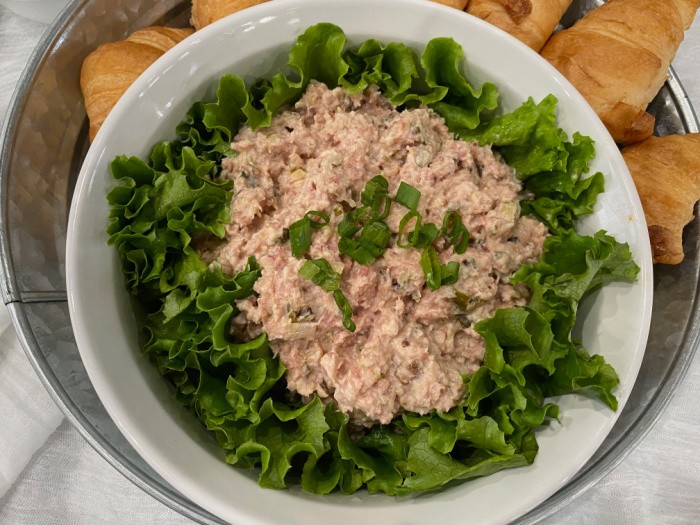
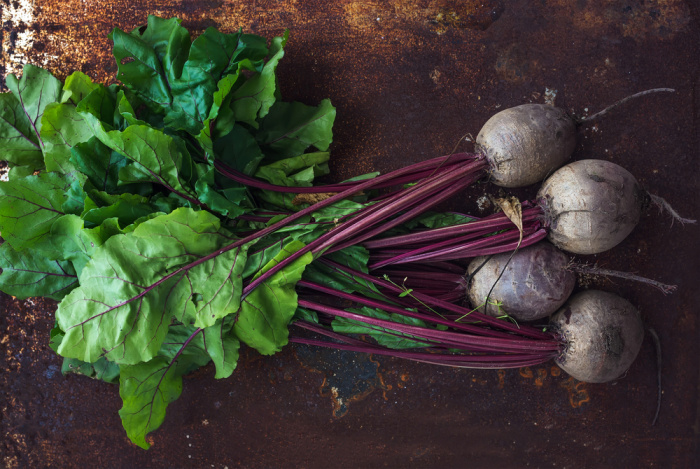
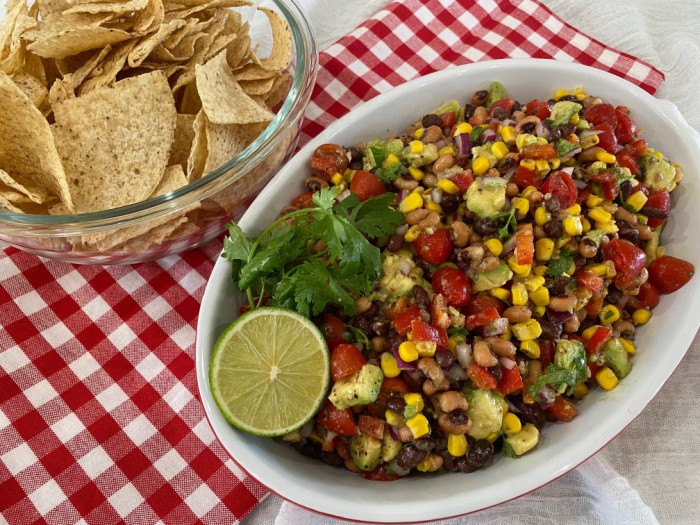
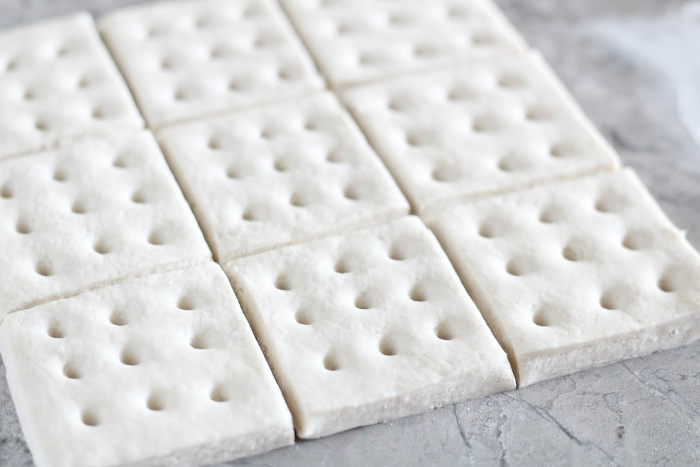
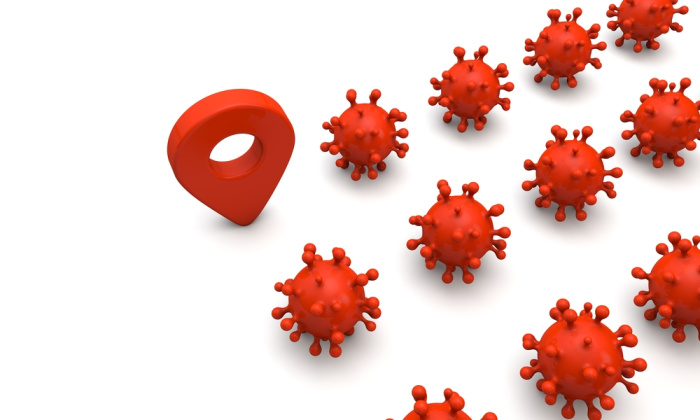
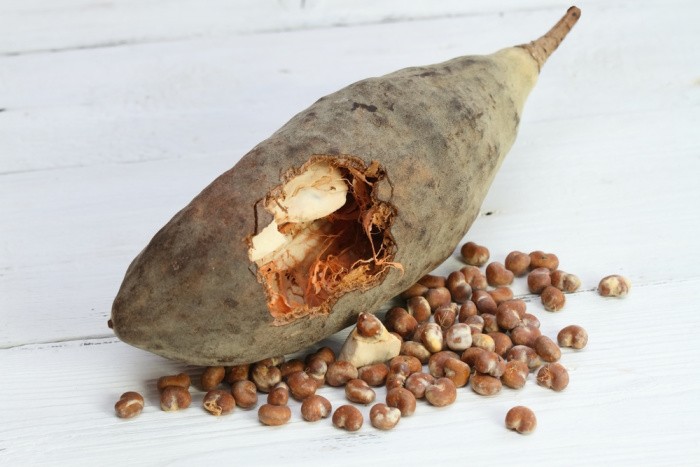
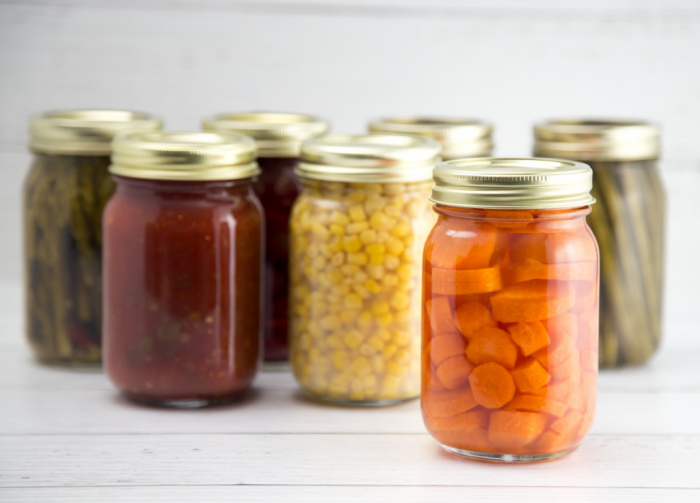



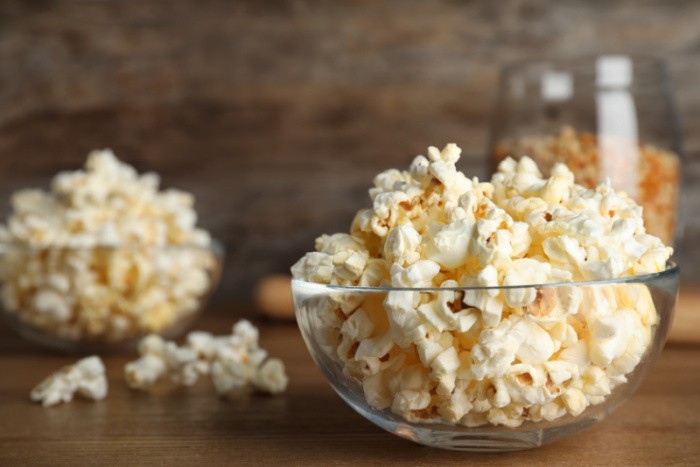
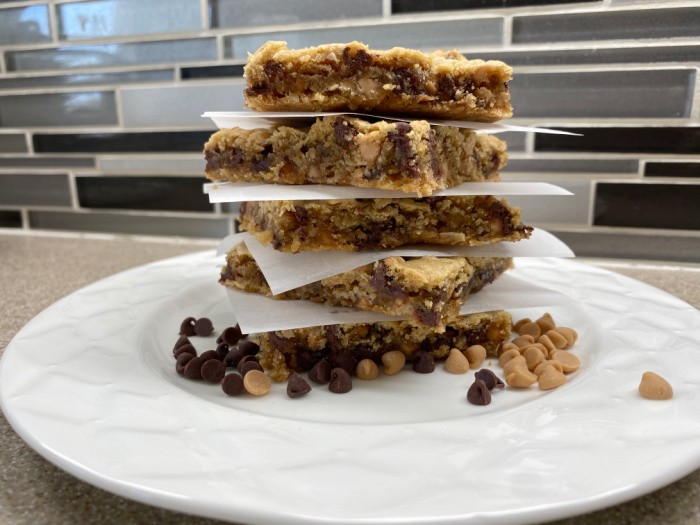
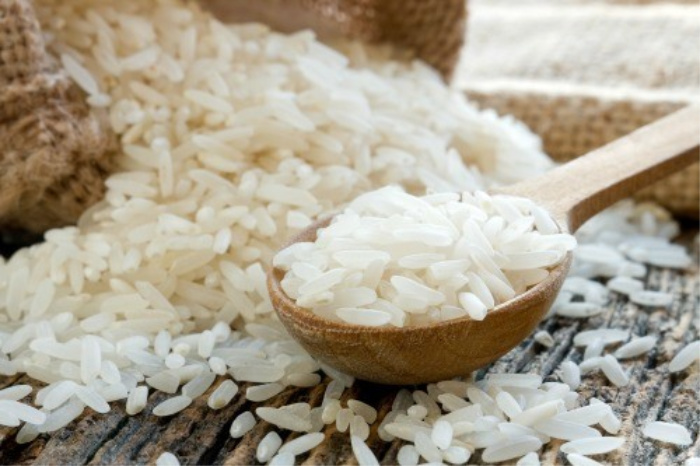
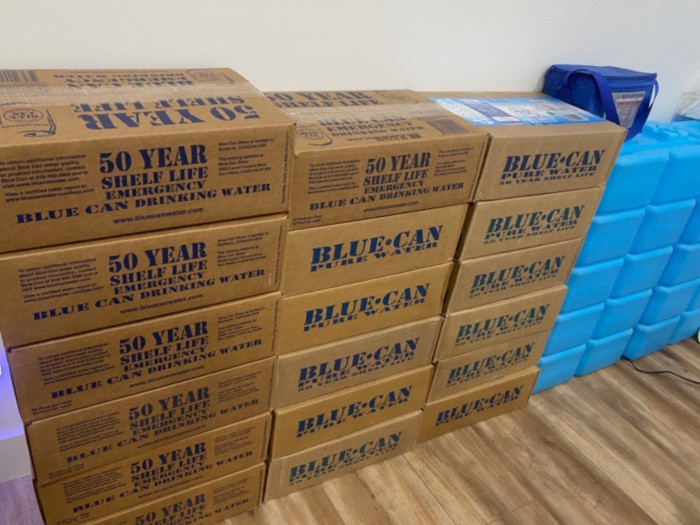
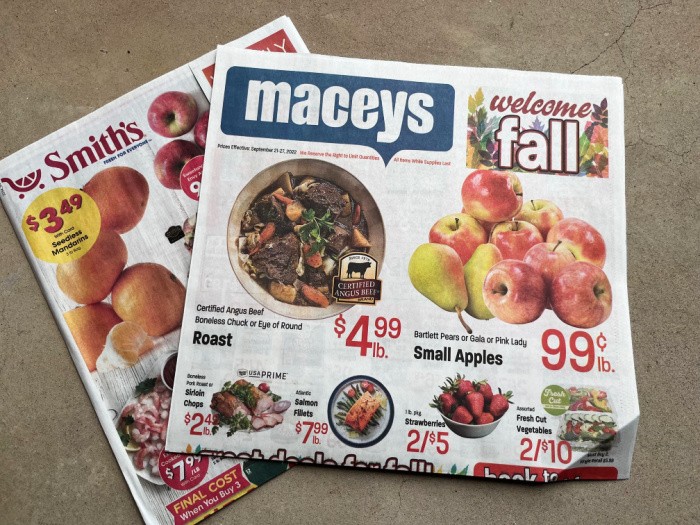
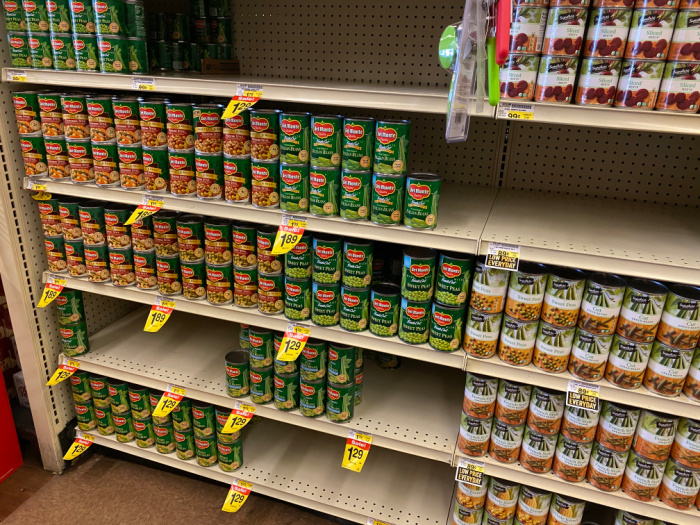
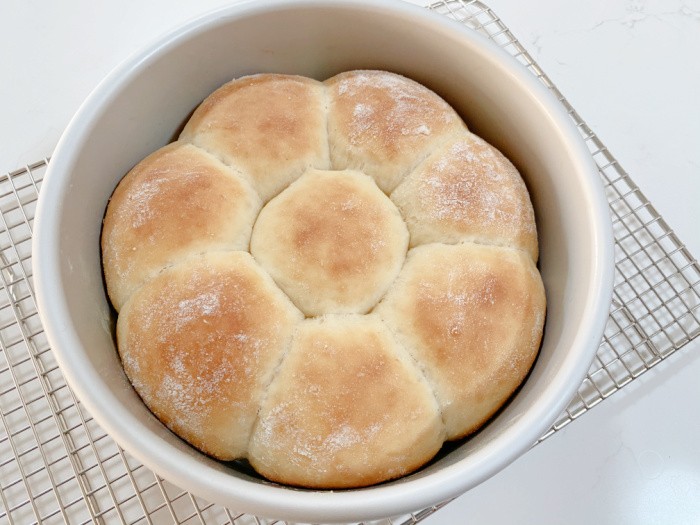
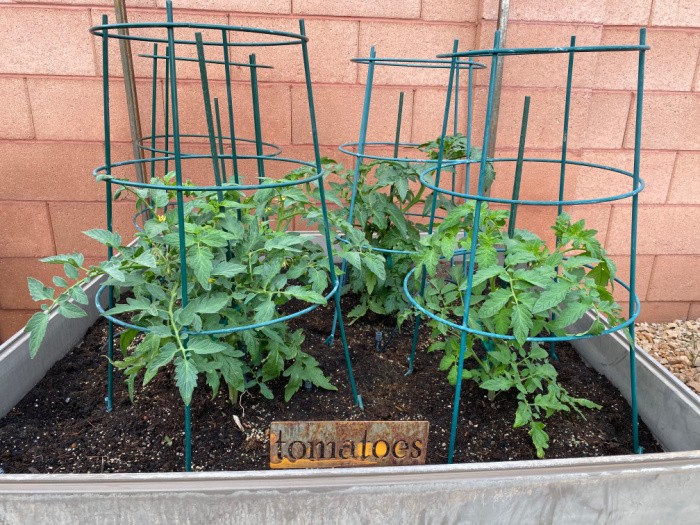

Linda, you are so awesome! Thank you for this post. Very informative. I’m headed to the store for more water. We have everything else. I did stock up on cold and flu meds. I have some Drip Drops. They are awesome. I also have some Gatorade. I have some other electrolyte drops ordered. Things seem to getting worse at this time of year. I’m getting as prepared as possible. I am staying out of big stores. Just go to our small stores here in our small town. Population less than 4,000. I can’t afford to take any chances.
HI Deborah, I love hearing this! Stay safe and stay Well! Linda
Great, clear article! Many thanks, Linda! I make sure to have juices and soups ready for all types of illnesses – nothing like liquids to help! Thank you for the symptom by symptom comparison, especially!
Hi Diana, thank you for your kind words! I did a lot of research on that article. I had two neighbors who tested positive for COVID and three days later they were both taken by ambulance to the hospipal. It’s critical we stay well!! But having broth and juices at home will keep us hydrated! Good job, stay well. Linda
Linda, I’m glad you mentioned broth. I just bought some. Granted I bought some once before and it didn’t taste too good to me, but I wanted to have some on hand in case we got sick. I also have soup and such. I have some NyQuil and DayQuil too. I got the capsules instead of the liquid. I did ge the pneumonia shot, but not the flu shot. I’ve never had one. Oh, and we have Vitamin C that we take when we start to feel a cold or such coming on.
Hi Deborah, I have the DayQuil and NyQuil as well. When I got my blood tests a couple of months ago, I asked for a Vitamin D test. It was way low, even though I swim every day in the summer without sunblock. So no I’m taking 5000 mg a day, plus Vitamin C and Zinc. And Mark makes us an Emergen-C drink every day. I always have the stuff to make chicken noodle soup. I think I will make some tomorrow and freeze some servings. We must stay well, Linda
My go to soup when I’m sick is potato soup. I cook the potatoes in chicken broth. Instead of milk, I use plain coffee creamer. I have been k own to put onion or cheese or bacon bits in it. Sometimes all the above.
Hi Deborah, now I want to make some potato soup with milk, onion, cheese, and bacon bits! LOL! I love soup! Linda
Thanks Linda ~
I love that you put the symptoms into a chart format! Very easy to read and decipher!
I am prepared for the seasonal illness and pray that I don’t get anything!! But with that said, I have a small (well, not really so small) bin that has all my OTCs for cold/flu, along with teas, soups, EmergenC, ~ just about anything/everything I might need if I feel a cold or flu coming on.
For all of your readers – I suggest getting some raw honey, a lemon and some ginger to make a soothing balm for your throat. All you need to do is wash the lemon really well (organic is best) and slice thinly; take an inch or two of ginger (I peel mine) and chop coarsely. Place both in a mason jar and fill with honey. Using a knife or chop stick or something similar, stir the ingredients well so the honey is mixed in well with the lemon slices and ginger chunks. With the anti-bacterial properties of honey, you should be able to leave this sitting on your counter. I have never had this concoction go bad but I stir daily and make sure the lemon and ginger are well covered by the honey. If you do not feel comfortable leaving this on the counter, I suggest that you make this, stir daily for a week, then strain and keep in the refrigerator. It will crystallize in the fridge, though and may make it more difficult to scoop out and make a tea with it. Also, if you do not particularly like ginger, you can strain the chunks out when making tea.
When you feel a sore throat coming on or sniffles/stuffy nose – do one of two things: make a tea with just hot water and a teaspoon or two of the honey (it is OK if there is some ginger in your cup but if you don’t like ginger that way, strain the tea) OR using a teaspoon, just eat a teaspoon or two to soothe your throat. Also, because honey is anti-bacterial, anti-fungal and anti-inflammatory (per the internet search), this should reduce the inflammation in your throat and soothe the soreness. Not sure you will get much of a boost of Vitamin C though! Ginger and lemons also have many medicinal qualities but again, you might not be getting much Vitamin C from this concoction!!!
DO NOT GIVE THIS TO INFANTS (due to the risk of botulism, honey should not be given to infants under 1 year of age).
Hi Leanne, thank for sharing your concoction, we need everything we can get our hands on right now. Mark and I are drinking a glass made with water and Emergen-c stirred in every single day. If I feel something coming on I grab the green tea, raw honey, and lemon. I need to remember the ginger. Great comment with tips we can all use. Stay well, Linda
Linda ~
The ginger is a warming herb and can help if you are chilly. I keep some grated ginger in the freezer to just add to hot water for that extra warming effect – and I eat the ginger!
I have some ginger-lemon tea. It is warming. We had some real ginger tea when we went to Jamaica. The more we drank, the hotter it got. I do love the taste.
Hi Leanne, oh, gotcha! I have a ginger deal in the freezer, thanks for the tip! Linda
Hello Mrs. Linda,
I wish I had this list before we both came down with Covid. If folks heed your warning they will be fine. My problem was NOT knowing all the signs, education is key. I woke up to my husband not breathing very well, finally called 911. It was Covid pneumonia. At the point of the EMT’s taking my husband from our bed to the hospital. No vent’s thank the Lord! Pure oxygen and a “covid cocktail”. He is home and we have just ended the 14 day quarantine. What I’m here to share is being “prepared” for anything. I cooked so little due to me being able to open my freezer, frig and pantry and take out a fresh meal I had frozen or prepared weeks prior. Or going to our “stash” closet to fine an extra peanut butter jar and extra soups. I want to thank you and your followers for getting us to the point of prepping. Not going out of the house for 14days would be maddening but we were ready, ready for anything. Again, many thanks
Hi Robin, oh my gosh, thank you for sharing your story. WOW WOW WOW! I’m so glad you and your husband are okay now. Thank goodness you have food at your home to feed yourselves. What a blessing. I just hope this Thanksgiving holiday doesn’t stir up more COVID. I’m afraid it will. We are staying home. Stay well, stay safe! Linda
Robin, God surely blessed you with getting well. You give me hope that we have enough to make it through if we were to become ill.
Hi Linda, As an RN I just wanted to say that your article is “spot on”. You’ve spent a lot of time an effort putting this together. I wanted to say THANK YOU! YOU DID A GREAT JOB.
A note to Leanne regarding her honey/ginger/lemon concoction. This is a great recipe and one that I have used every winter. As for honey going bad. Honey will NEVER go bad. Honey is one of the items found in the tombs of Pharoahs in Eqypt which were hundreds of years old . YES, the honey had crystallized but it was still edible.
Long before we had any kind of anti-biotics, Honey was routinely used to spread on wounds to help them heal. At least if the physician was a forward thinking doctor. Every time the dressing was changed and the wound cleansed, a new “spread” of honey would be applied to the wound befoe re-dressing the wound. (Just a little bit of history here)
After comparing the ingredients of minerals/electrolytes in both Gatorade and Powerade, I have decided that Powerade is the better of the two, with more of what your body needs.
Linda, can you tell me where I would find Drip Drops and what exactly are they?
Please stay well and safe. Enjoy your Thanksgiving..This year it will just be my hubby and myself.
Hi Suzanne, oh thank you for your kind words! That means a lot coming from an R.N.!! Thank you, my friend! You can get Drip Drops on Amazon: https://amzn.to/3kZ6WL7 Stay well, Happy Thanksgiving! It will just be my husband and two friends who we switch off making dinner every Sunday. We don’t dare go visit family this year. It’s all good! Linda
Suzanne, thank you for your input on the Gatorade and Powerade. I’ll be buying the Powerade from now on. I do have some of the drip drops as well. I have given some to my daughter and son in law. She was sick when I have her some. And he was going on a hike when I gave him some. They have now ordered their own, and I have some in my wish list for hubby to order. He does the ordering from Amazon.
Honey doesn’t go bad BUT I have had friends who said mold grew on the top of their concoction. The only thing I could surmise is that the honey was not covering the lemons? Not sure but also they may not have been using pure honey – some is cut with water and is more runny than real honey. I only use local honey. Also, I like to see crystallized honey on my shelf – that way I know without a doubt that it is pure honey.
I’ve never had an issue with my honey/lemon/ginger concoction going bad myself. I was really only telling others that there are options if they don’t feel comfortable leaving it sit on the counter as mine always does.
Hi Leanne, I wondered the same thing. I only buy raw honey, the real deal. Linda
Excellent post. Linda, and excellent comments from everyone! A strong ginger tea laced with honey and lemon soothes both throat and stomach. I keep plenty on hand. Small pinches of crystallized ginger are also good to eat when your guts are in revolt. My son taught me that one.
I do have concerns about the statistics you cited. In a bizarre move many months ago, the CDC told health departments and care facilities to stop counting cases of regular influenza, so we now have no way to know how many supposed covid cases were/are actually flu. That has deeply perplexed me. Our local hospitals are saying they are full, but they don’t say with what. And few people have seen the scientific studies coming out of Portugal and Denmark yet that contradict a lot of the longstanding covid restrictions we’ve been forced to endure. It is a huge mess. We cannot afford to be kept in the dark about facts that are now known by thousands of reputable medical professionals around the world. The covid virus is a horrible deal to contract, however, so I do hope the Moderna vaccine is the real deal. (Not sure I will ever be able to trust a Pfizer product again.)
Hi Terry, I think the statistics change every day. I just wrote about what I researched. It’s interesting I live in Southern Utah and the news is reporting Utah’s hospitals are almost full. Here’s the deal, my sister-in-law had a hip replacement about a week ago. Yet, my friend cannot have his back operated on until the COVID cases lessen. The reason for his surgery being delayed is he will be in ICU for several days so he cannot have his surgery for a while. The hospitals need every ICU room. I doubt we will ever know the true facts about COVID or any vaccination. I hear a new count on COVID cases in Utah every day, plus deaths, and recoveries. Linda
Linda, this is excellent! Your chart was well-researched and can certainly help people. My sister is in the medical field and I know she tries to educate, not scare, people. One thing she told me was that it seems the ‘amount of load’ of Covid19 a person is exposed to, may determine how bad they get it, not just whether they have underlying issues. As a non-scientist, this makes sense from an anecdotal view, and from personal experience in my own family/friends. The big thing seems to be if a person regularly wears a mask, socially distances, hand sanitizes, as …yes, we can’t stop All germs from reaching us but the fewer that do, the easier it is on us. Just some more info to share with everyone. Peace to everyone!
Hi Wendy, oh, thank you for sharing your sister’s view, we can use all the tips we can get on this COVID stuff. It makes sense to me as well. Stay safe, stay well. Linda